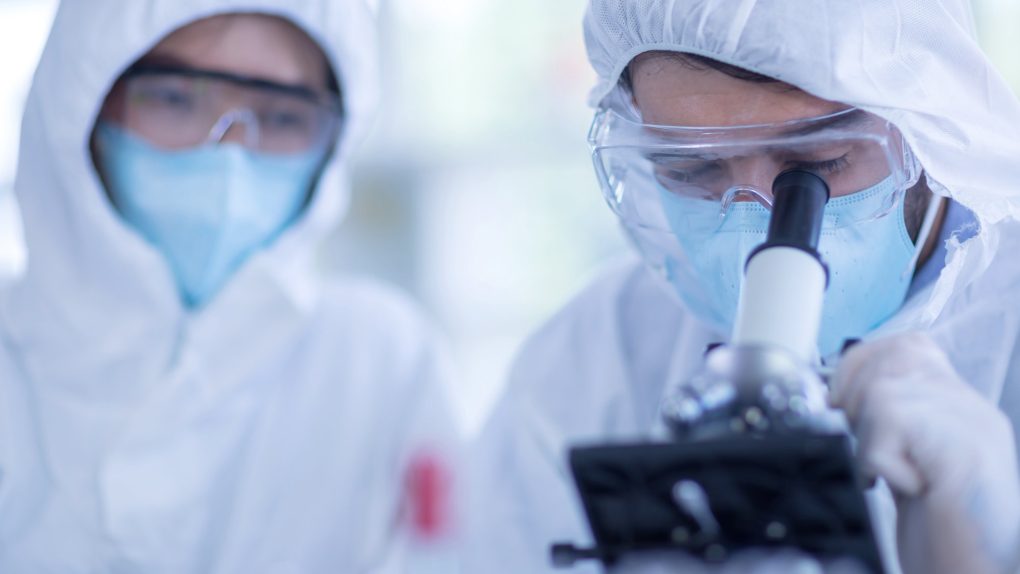- Doctors learned early on in the pandemic that the novel coronavirus causes blood clots that can lead to unexpected symptoms, including strokes and heart attacks.
- Since these COVID-19 complications can be life-threatening, doctors have been treating patients with blood thinners.
- Researchers have now identified a type of antibody that favors the formation of clots, but they still can’t explain why some coronavirus patients develop these harmful “autoantibodies.”
We learned in the early months of the pandemic that doctors saw some unusual COVID-19 symptoms. Patients who were coming in for neurological or heart problems were actually infected with the novel coronavirus. The virus could cause heart attacks and strokes, and doctors quickly learned why that happens: the virus impacts blood vessels and forms blood clots, which can be deadly. Clotting can block arteries transporting blood to other organs. This leads to strokes in the brain and heart attacks when heart vessels are impacted. Those micro blood clots can block small vessels in the lungs as well. Physicians have added blood thinners to their arsenal of COVID-19 therapies to reduce the risk of complications. And now, researchers studying the clotting phenomenon came up with an answer for this peculiar behavior of the respiratory virus.
Scientists from the University of Michigan have published a paper in Science Translational Medicine that details the role of so-called “autoantibodies” that favor clotting in COVID-19. Autoantibodies are autoimmune antibodies that circulate in the blood just like other antibodies, including the neutralizing ones that can block the virus from infecting cells. But these autoantibodies are harmful, as they can lead to the creation of blood clots. Those, in turn, can impact the functionality of organs and trigger various complications.
Corresponding author Dr. Yogen Kanthi said these autoantibodies are observed in patients suffering from an autoimmune disease called antiphospholipid syndrome.
“In patients with COVID-19, we continue to see a relentless, self-amplifying cycle of inflammation and clotting in the body,” Kanthi said, per Health Lab. “Now, we’re learning that autoantibodies could be a culprit in this loop of clotting and inflammation that makes people who were already struggling even sicker.”
A different scientist who worked on the study, rheumatologist Jason Knight, said that half of the hospitalized COVID-19 patients were positive for at least one of the autoantibodies, “which was quite a surprise.” The researchers found that around 50% of patients who had severe COVID-19 had high levels of autoantibodies and “super-activated neutrophils,” which are “destructive, exploding white blood cells.”
They took these two compounds and tested them on mice to see the effect. “Antibodies from patients with active COVID-19 infection created a striking amount of clotting in animals – some of the worst clotting we’ve ever seen,” Kanthi said. “We’ve discovered a new mechanism by which patients with COVID-19 may develop blood clots.”
The researchers still can’t explain what causes the formation of autoantibodies in the first place though, so their finding doesn’t necessarily have immediate use. In other words, there’s still no solution to prevent the development of bad antibodies. But they speculate that a treatment involving the removal and replacement of blood plasma (plasmapheresis) would eliminate the autoimmune antibodies. That way, the risk of clotting would be reduced.
The researchers explained that people with the highest level of autoantibodies did worse when it comes to respiratory function. Avoiding the risk of clotting should improve the condition of patients who develop autoantibodies. The doctors also plan to study how long these antibodies remain in circulation after recovery from COVID-19. Their findings might impact the use of blood plasma therapy in the future.
Separately, the researchers are running a clinical trial for an anti-clotting agent called dipyridamole to see whether it’s effective against the clotting that occurs in some cases of COVID-19. “Dipyridamole is an old drug that is safe, inexpensive, and scalable,” Kanthi said. “The FDA approved it 20 years ago to prevent clotting, but we only recently discovered its potential to block this specific type of inflammation that occurs in COVID.”








